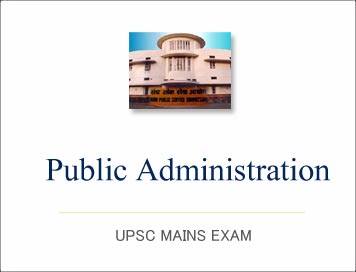(Online Course) Pub Ad for IAS Mains: Comparative Public Administration - Ecology and administration (Paper -1)

(Online Course) Public Administration for IAS Mains Exams
Topic: Comparative Public Administration: Ecology and administration
Man is the product of his environment and so are his institutions soctal, political, economic and others. In a social system, environment broadly comprises institutions, history, law, ethics, philosophy, religion education, traditions, beliefs, values, symbols, myths etc. which may described as material as well as non-material culture. All institutions a Influenced by a society’s environment and culture, that includes pub administration too. Public administration being a sub-system interacts with the social system. F.W. Riggs remarks that “The stgnificance of each (administrative) pattern lies in its setting". Guy Peters opines that The social and economic system of a country place boundaries on the actions of a government and more specifically public administration. Political culture is equally important in setting boundaries although the boundaries are less tangible than those determined by economic conditions. By defining what in government good and bad, the culture may virtually mandate some actions and prohibit others.” Now it is being universally conceded that within any society, political, economic and socio-cultural developments interact with the administrative system, as all social systems (including the administrative system) “enter into transaction with their environments influencing and being influenced by them”.
Meaning and Relevance of “Ecology”
In public administration, John M. Gaus emphasised, in 1947, the need to employ the concept of ecology to study the necessary interdependence of public bureaucracy and its environment. In the same year Robert Dahl stressed the need for cross-cultural studies and emphasised environmental effects on administrative structure and behaviours? He observed that public administration cannot escape the effects of ‘national psychology’ and political, social and cultural environment in which it develops. He decried the almost total ignorance of the relationship between the so-called “principles of public administration” and their general setting.
It was in the 1950s that real and widespread interest in the study of relevance of ecology to public administration was observed. That was also the period during which the U.S. technical assistance programme was in its early period of growth. So there was an emerging interest in that country in the study of administrative patterns of the newly independent nations during the post World War II period. Their varied administrative patterns inspired writings for study of the diverse effects of social setting upon public administration. By 1961, Fred W. Riggs in his “The Ecology of Public Administration” had from a comparative perspective, explored the interaction between public administration and the environment in which it develops.
